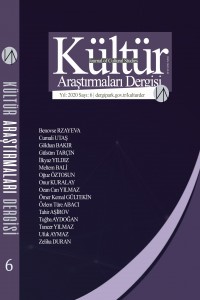Abstract
Folklorists can resolve their theory anxieties by embracing not grand but humble theory. Humble theory informs and is informed by ethnography and practice. It addresses how- rather than why-questions: the middle ground between lived experience and putative transcendent laws. In this zone we can build on our disci-plinary legacy. Instead, we need to render unto theory what is due to theory. In part that means getting over our anxiety about reductionism. Thought is reduction. But humble theory recognizes that all our work is essay, in the etymological sense: a trying-out of interpretation, a provisional framing to see how it looks. In the absence of a better alternative, there is much to be said for the Enlightenment project. Science reduces reality in an effort to understand it but it also properly lays itself open to an ongoing process of collective correction and revision.
Keywords
References
- Hanson, Susan (2008). Forthcoming Lyric Suburbia: Performing Commu-nity in Worthington, Ohio. Ph.D. diss. Columbus: The Ohio State University.
- Hymes, Dell (1975). "Folklore's Nature and the Sun's Myth”. Journal of American Folklore, 88: 345-369.
- Jackson, Jason Baird (2004). "Recontextualizing Revitalization: Cosmology and Cultural Stability in the Adoption of Peyotism among the Yuchi”. Reassessing Revitalization: Perspectives from North America and the Pacific Islands. (Ed. Michael Harkin). Lincoln: University of Nebraska Press, 183-205.
- Roberts, John W. (1999). “…Hidden Right Out in the Open: The Field of Folklore and the Problem of Invisibility”. Journal of American Folklore, 112/444: 119-139.
- White, E. B. (1952). Charlotte's Web. New York: Harper.
- Ziman, John (1991). Reliable Knowledge: An Exploration of the Grounds for Belief in Science. Cambridge: Cambridge University Press.
Abstract
Folklorcular, büyük teori yerine mütevazı teoriyi benimseyerek kendi teori sıkıntılarını çözebilirler. Mütevazı teori, etnoloji ve uygulama tarafından haberdar edilerek bilgilendirir. O, yaşanmış deneyim ile varsayılan insan aklını aşan yasaların tam ortasındaki bölgede neden sorularından ziyade nasıl sorularını ele alır. Bu bölgede, disiplin ile ilgili mirasımızı geliştirebiliriz. Buna karşılık, teoriye neyin teoriden kaynaklandığını sunmaya ihtiyacımız var. Bu, kısmen indirgemecilik ile ilgili endişeniz-den kurtulmak anlamına geliyor. Düşünce, indirmedir. Ancak mütevazı teori, tüm çalışmalarımızın etimolojik anlamda bir deneme olduğunu kabul eder: bir yorum denemesi, nasıl göründüğünü anlamak için geçici bir çerçeve... Daha iyi bir alternatifin bulunmaması durumunda, Aydınlanma Projesi için söylenecek çok şey var. Bilim, onu anlamak için gerçekliği indirger, ancak aynı zamanda kendisini sürekli bir toplu düzeltme ve gözden geçirme sürecine açık bırakır.
Keywords
References
- Hanson, Susan (2008). Forthcoming Lyric Suburbia: Performing Commu-nity in Worthington, Ohio. Ph.D. diss. Columbus: The Ohio State University.
- Hymes, Dell (1975). "Folklore's Nature and the Sun's Myth”. Journal of American Folklore, 88: 345-369.
- Jackson, Jason Baird (2004). "Recontextualizing Revitalization: Cosmology and Cultural Stability in the Adoption of Peyotism among the Yuchi”. Reassessing Revitalization: Perspectives from North America and the Pacific Islands. (Ed. Michael Harkin). Lincoln: University of Nebraska Press, 183-205.
- Roberts, John W. (1999). “…Hidden Right Out in the Open: The Field of Folklore and the Problem of Invisibility”. Journal of American Folklore, 112/444: 119-139.
- White, E. B. (1952). Charlotte's Web. New York: Harper.
- Ziman, John (1991). Reliable Knowledge: An Exploration of the Grounds for Belief in Science. Cambridge: Cambridge University Press.
Details
| Primary Language | Turkish |
|---|---|
| Subjects | Turkish Folklore |
| Journal Section | Translations |
| Authors | |
| Translators | |
| Publication Date | September 15, 2020 |
| Published in Issue | Year 2020 Issue: 6 |


